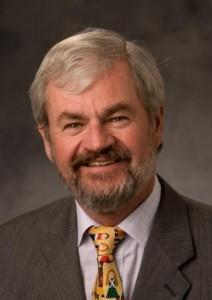

This spring, 99 new doctors graduated from Duke University’s School of Medicine, where we serve as dean and vice dean of education. Another 190 master’s and doctoral students earned degrees from the school in health professions-related fields.
Graduation is always a proud moment for our students, their families, and for our faculty and staff who help prepare students for the next step in their career paths. Our graduates have accepted the enormous responsibilities associated with taking care of patients, educating others, and furthering research and discovery. Their careers will be exciting and rewarding, and we are always thrilled to see them eagerly move ahead in their journeys.
We are also aware of the increasing burdens that our students — and students across the country — face. Among the most daunting are increasing student debt and concerns about job security. The average medical school indebtedness for 2013 MD graduates was approximately $170,000 nationally; at Duke, it was $112,000. This debt will follow students for much of their lives, and will have consequences for our greater community as well.
There is ongoing debate about how medical student debt will impact health care in the future, but there is no doubt the high cost of medical education will likely deter some medical school applicants — particularly those from underserved populations — and will exacerbate the impending physician shortages. The Association of American Medical Colleges (AAMC) estimates by 2020 there will be 45,000 too few primary care physicians in the U.S. The AAMC also predicts a shortage of 46,000 surgeons and medical specialists.
Medical centers like Duke face their own challenges in helping prepare students for careers in health care. In particular, we are concerned about our nation’s ability to provide advanced training to our physician graduates. The number of federally funded residency training positions was capped by Congress in 1997 by the Balanced Budget Act. The current limitations on graduate medical education (GME) slots mean some students who finish medical school will not be able to complete the training they need to take care of patients.
Duke and many of our peer institutions have taken a number of steps to address these issues.
In 2009, Duke’s School of Medicine created the Primary Care Leadership Track to train students to become health leaders in their community. This program builds on a longstanding partnership between Duke and the Durham community to understand the causes of health disparities, create a strong research focus on community engagement, and learn how to redesign clinical programs to better serve patient needs. Our Physician Assistant (PA) program graduates also play important roles in providing care to patients in North Carolina and beyond. With increasing expectations of physician shortages, especially in primary care, PAs will continue to be key members of inter-professional patient care delivery teams.
At Duke, we have begun to think about how we can educate and train our students in an expedited way that reduces their costs. Having already condensed the required, foundational part of our education program from three to two years, we are now looking at ways to combine medical school and residency training for students who identify their career specialty early. For example, students interested in orthopedics may be able to shorten their combined medical school and residency training by up to two years, leaving them with less debt and allowing them to practice much earlier.
While these efforts begin to address some of the issues related to educating our future health providers, they are not enough. We must continue to be innovative in our approach to education to ensure that students across the country will choose health professions careers and will receive the training needed to serve patients in our own communities and throughout the world.
And while the number of federally funded GME positions is controlled by Congress, we should advocate for changes that would eliminate the current cap. That would help to ensure that our nation can provide the opportunities our students need to complete their physician training.
Nancy C. Andrews, MD, PhD, is the dean of the Duke University School of Medicine.
Edward Buckley, MD, is the vice dean for education for the Duke University School of Medicine.